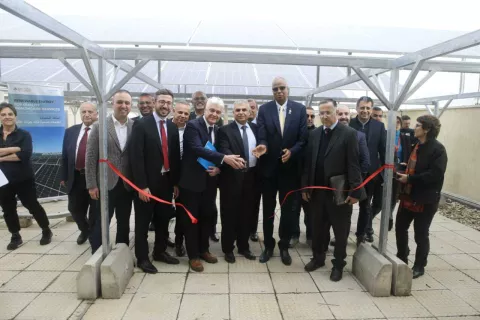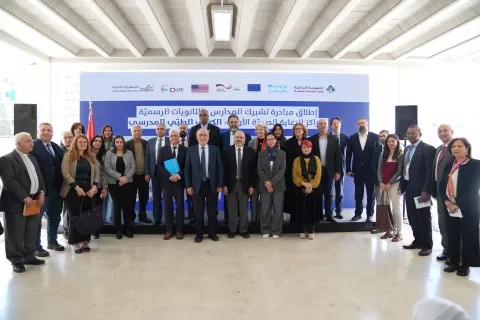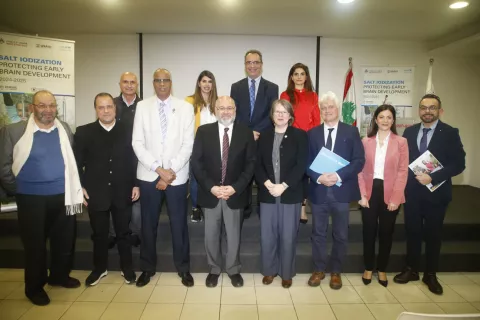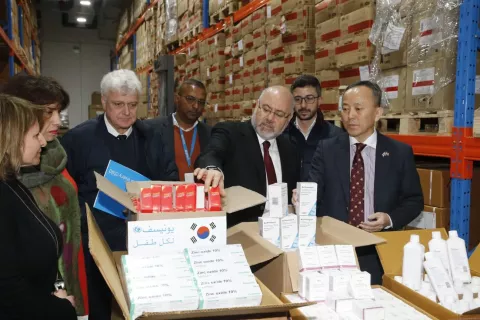The Ministry of Public Health and UNICEF in partnerships with the German and U.S. Governments will solarize 150 primary healthcare centres to ensure immunization and essential public health services are not interrupted in Lebanon
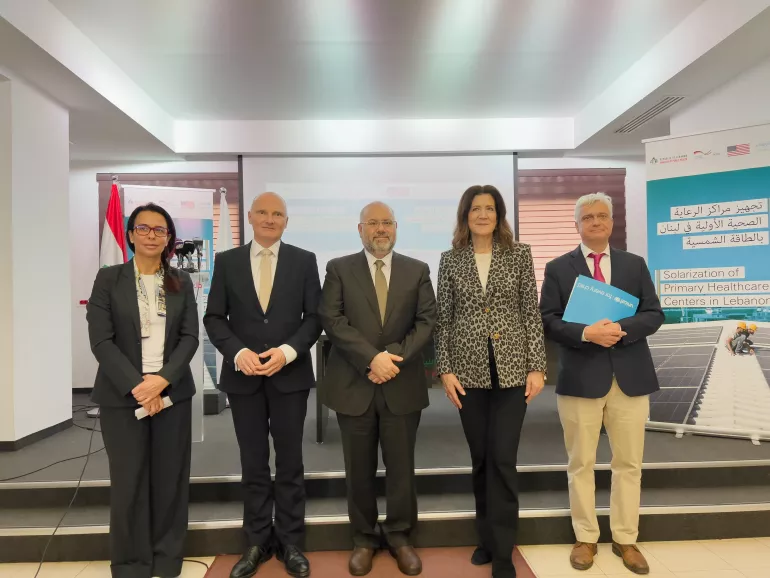
- Available in:
- English
- العربية
March 7, 2023 – Today the Ministry of Public Health (MoPH) and UNICEF announced the solarization of 150 Primary Healthcare Centres (PHCC) to ensure the continuation of vaccination services along with other essential primary health services even during the extensive electricity cuts. Through the funding support of Germany, through the German development bank, as well as the United States Government, UNICEF will begin the implementation of solarization of these centres in March to be finalized by end of May 2023.
This solarization follows the upgrade of the cold chain network with more than 900 solar equipment to strengthen the immunization program, as main entry point to primary healthcare and ensure the safety of vaccines through a functional and reliable cold chain. This additional solarization will make nearly the entire network of PHCC under MoPH, wherever feasible, to maintain basic functions on solar energy. It will ensure the immunization service delivery as well as other primary health care services are maintained so that children don’t miss out on life-saving vaccines.
The Minister of Public Health, Dr. Firas Al-Abyadh, said that "securing sustainability in the energy sector in particular is an essential matter, and this support came at a critical stage in granting healthcare centres a certain independence that would allow them to continue their services." The minister praised the continuous support that Lebanon receives from the international community, pointing out that "it does not only address the refugee community, but also the Lebanese community at the same level." He added: "Regardless of this support, the great responsibility for reforming the health sector rests with Lebanon and its ministries."
“Today’s investment will improve essential health services for children. Vaccines must be kept at the right temperature to work effectively, and solar-powered electricity is critical to ensure safety of vaccines and to support the PHCCs continue their immunization services along with other basic health services,” said Edouard Beigbeder, UNICEF Representative in Lebanon. “For many years, UNICEF has partnered with MoPH to deliver essential routine vaccines, keep supplies safe and effective, and help ensure children are protected from life-threatening diseases.”
The current crisis, coupled with the continuous power cuts, has overstretched the health services in Lebanon. Regardless of all these setbacks, it is vital that national routine vaccinations and essential primary health care services continue without interruption. Immunization as main entry point to primary healthcare, is one of the most effective public health interventions and when routine vaccinations are missed, the risk of disease outbreaks increases.
The German ambassador praised the project of equipping several healthcare centres with solar energy because it saves the health sector from part of the crises that Lebanon is suffering from, especially the electricity crisis, and said: "This investment, even if it is limited, is of great benefit."
Ambassador Shea: “The economic crisis has been felt across Lebanon, notably in the healthcare sector. Despite these challenges, the people of Lebanon, in cooperation with local and international partners, continue to respond to health emergencies and save lives. The United States is proud to support these efforts.”
Solar powered cold chain support for vaccines, medication, and other services aims to ensure equity in healthcare service provision and improve facility operations and staff retention. In more than 80 countries, UNICEF has supported the solarization and off-grid energy solutions for vaccine cold chain. This includes providing technical assessments to define and quantify vaccine storage and relevant energy needs at healthcare facilities.
The solar PV systems will have a direct and positive impact on environment and climate as well as lead to significant savings, in form of diesel expenses for the generators, as the essential loads of PHCCs will run on solar energy. As far as the environment and sustainability are concerned, solar power produces no CO2 emissions, and life-cycle assessments demonstrate that it has a smaller carbon footprint from “cradle-to-grave” compared to non-environment friendly power sources.
We encourage parents and caregivers to timely follow-up on their children’s vaccination appointments at the nearest public health facilities, available across the country.
About UNICEF
UNICEF works in some of the world’s toughest places, to reach the world’s most disadvantaged children. Across 190 countries and territories, we work for every child, everywhere, to build a better world for everyone. For more information about UNICEF and its work for children visit www.unicef.org/lebanon/.
Follow UNICEF Lebanon on Facebook, Twitter, Instagram, LinkedIn and YouTube.

